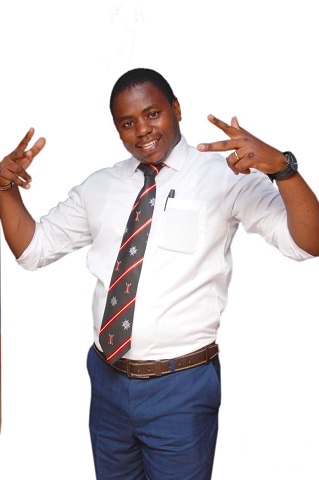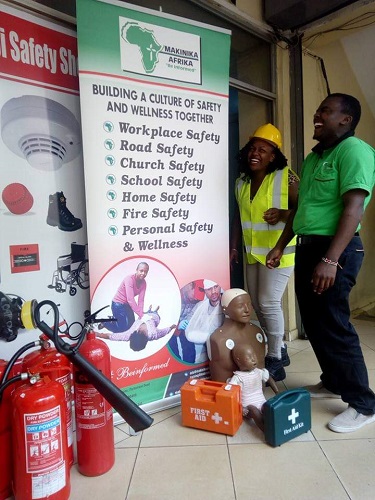EFFECTIVE CHURCH PROTOCOL AND ETIQUETTE
The church is the most important place where dignity, protocol, respect and reverence should be maintained. Why? Because when we come to church and its services, we are entering into the Kingdom of God on earth, His habitation, and we choose to honor this sacred place by our attentiveness to what is proper and orderly. At that very moment, we have the opportunity to reflect the image of Christ within us by our actions.
The church is the house of God and because we serve a God who is not the author of confusion, but a God who is orderly and organized, it is therefore pertinent that church services are well organized and order is duly observed.
With this in mind we have to develop a code of ethics to treat brethren with dignity and courtesy to help them have a conducive worshipping environment thus Church protocol and etiquette should be put in place.
Protocol is defined as the system of rules and acceptable behavior used at official ceremonies and occasions or a code of ceremonial forms and courtesies of procedures accepted as proper and correct in official dealing.
It is a system of rules that explain the correct conduct and procedures to be followed in formal situations.
It is the formal system of rules for correct behavior on official occasions.
A code of courtesies, proper practices, set of rules regarding church worship service.
In the scriptures we find a good definition from 1 Corinthians chapter 14 vs 40 (NKJV) says “Let all things be done decently and in order”
Spiritual Protocol is a reference to the respect, honor and deference due at all times to those in authority in the House of God.
In event planning, protocol encompasses the formalities, etiquette, and guidelines one should adhere to when hosting or interacting with government officials or other organizational leaders.
It is a combination of good manners and communication skills that lead to a competent and polite event, be it coronation, inauguration or ceremony.
Special procedures are used in politics, at the official level and anywhere where attendants expect to mark their status, get respect and feel responsible for their role in the society.
A church protocol officer is a person who makes sure that all the religious ceremonies, including memorial services, funerals, weddings, meetings, and other services are observed according to the proper instructions.
A church protocol officer is perfect at knowing the etiquette rules. This person or team of people ensures that the traditions carried are honoured, everything runs in the correct order, and every service is distributed according to the fundamental rules of the house of God.
Protocol officers are experts in the field of protocol and etiquette, and they have a deep understanding of the complex rules and customs that govern the behavior of individuals in professional settings. They are responsible for ensuring that protocol is followed during events, meetings, and other occasions, and they work closely with event planners, executives, and other stakeholders to ensure that everything runs smoothly.
One of the main responsibilities of a protocol officer is to coordinate logistics for events and meetings. This includes arranging transportation, accommodations, and meals for attendees, as well as managing the schedule and agenda for the event. Protocol officers also work closely with event planners to ensure that the event is held in a suitable location and that all necessary arrangements are made for attendees.
In addition to coordinating logistics, protocol officers also play a key role in managing protocol during events. This includes managing the seating arrangements for attendees, overseeing the introductions and presentations, and ensuring that everyone follows proper etiquette and protocol. Protocol officers also serve as liaisons between attendees and event organizers, facilitating communication and ensuring that everyone is aware of the protocols and expectations for the event.
Good communication skills are important for protocol officers because they need to establish expectations for good etiquette at important events and ceremonies. They also coordinate events and need to communicate with multiple stakeholders to ensure events operate smoothly.
Protocol officers are almost always involved any time high ranking government officials meet. When they are doing their job well, their presence is all but undetected — they will iron out the details of a meeting and coordinate with local hosts, but almost all of this is well outside of the spotlight. In most cases, the only time officers intervene is when a gaffe or protocol violation has or is immediately about to occur.
By working beforehand to make sure that everything goes as it should, crises and gaffes can be avoided or at least minimized.
In addition to coordinating, most protocol officers also engage in quite a bit of direct advising. They will typically coach leaders or speakers about what to do and how to act. Depending on the seriousness of the event or engagement in question, the officer may help rehearse or practice different greetings or role-play potentially tough scenarios. When foreign cultures are involved, the protocol officer will research potentially offensive customs or turns of phrase, and will coach all travelers of common mistakes and ways to avoid them.
ATTRIBUTES OF A GOOD PROTOCOL OFFICER
1. Flexible and tireless, willing to work long hours at often odd or inconvenient times.
2. Excellent communicators with impeccable personal appearance and conduct.
3. Significant experience in etiquette, event planning, and negotiation tactics
4. Excellent listening, responding and anticipating skills
5. Exemplary Organizational and interpersonal Skills
6. Humble and Sensitivity to the needs of others
7. Critical thinkers and solution oriented
PROTOCOL OFFICER DUTIES
• Assisting and taking care of the pastor, bishop, guest ministers, etc. before, during, and after the course of the service, meeting, or an event in the church.
• Attending all meetings and services in the Lord’s house
• Identifying visiting ministers, special guests, church visitors and ensuring they are attended to appropriately
• Following the routine duties according to the fundamental and principle ideas of a church
• Being in charge of protocol generally for a pastor
• Protocolling for guest ministers
• Coordinating people who wish to meet a pastor
• Plan foreign and domestic visits, ceremonies and special events.
• Routine protocol duties within and around the church premises during services and meetings
• Manning the church entrance, church auditorium and pastor’s office
• Compiling and inviting guests to special programs.
• Organizing travel documents for guests
• Follow up on logistics, accommodations and venues for special events
• Identify security risks and create safety plans.
• Liaise with security personnel to develop and implement security plans for protocol-related events
• Make and send invitations.
• Create suitable seating arrangements.
• Coordinate Logistics and formalities during special programs
• Ensuring special amenities are provided for visitors if necessary.
• Manning all the public areas in the building, including the entrance and sanctuary (the area around the altar)
• Identifying ministers and other special guests and honouring them appropriately
• Following the formalities during special meetings
• Taking care of a pastor at all the stages of the event, meeting or service in or outside the building
• Taking care of guest ministers (processing their documents, arranging their accommodation, transportation and solving other logistics issues)
• Organise the arrival and departure of attendees.
• Being always polite and helpful to the pastor and ministers
• Performing all assignments made by the pastor
• Prepare detailed itineraries for visiting dignitaries, ensuring that all logistical needs are taken care of in a timely and efficient manner
• Maintain up-to-date knowledge of international diplomatic protocol standards and best practices
• Stay abreast of current affairs and developments relevant to the church, region, nation and the world.
• Model polite behavior.
• Arrange photo opportunities and press conferences.
• Prevent etiquette breaches or embarrassing cultural blunders.
Protocol officers provide a framework for order and consistency, ensuring that everyone knows what is expected of them. This, in turn, allows tasks to be performed more efficiently and effectively, reducing the risk of errors, delays, or miscommunications.
Protocol officers must know how to make everyone feel welcome and respected. They take the time to ask about the likes, dislikes, preferences and customs of each person who may attend a milestone event. Protocol officers do their best to accommodate everyone within reason. They make every effort to minimize or eliminate any opportunity for embarrassment or offense.
Protocol officers establish and enforce consistency using logic. By following the same rules for every situation while showing deference when and where it is due helps prevent minor disagreements from becoming unrecoverable conflicts.
You must be able to remember the minutest details, plan for every possible contingency and intenerally, and perform proper people and time management. Coordination is the key to a successful protocol event, whether it is a visit or large social function.
Protocol is summarized by ‘ORDER’
Obedience + Rules + Direction + Excellence = Results
COMPETENCIES OF A CHURCH PROTOCOL OFFICER
1. Spiritual Competence
2. Intellectual Competence
3. Relational Competence
CHURCH ETIQUETTS FOR BELIEVERS
Turn off all digital devices, especially cell phones.
Govern yourself accordingly during worship service.
No eating, talking loud, foolish conversations, or excessive walking.
Exhibit respect in your wardrobe choices.
Avoid cliques.
Observe worship service schedules.
Don’t be the “arrive late and leave early” member.
If an emergency arises, exit the sanctuary with discretion.
Be considerate of others if you have small children.
NEVER WALK ;
In front or across the front of the altar or the pulpit area during worship
During scripture readings or prayers.
During communion
If you are walking and someone begins to read the scripture or begins to pray, STOP AND STAND UNTIL THEY ARE FINISHED!
RIGHT TIME TO WALK
During Singing by the choir
Offering time
Announcements time
Reminder! When you move :
Do not pass in front of the pulpit
Use the side aisles and the side doors
Do not run, but walk
No Talking unless when prompted by service leader or Preacher
Some people believe that the protocol officer duties are the same as the responsibilities of the ushering team. It is not true, and the two job positions differ from one other. A protocol officer usually does not guide or help visitors to be seated, does not hand over books, envelopes or leaflets, does not greet every other person at the entrance, does not entertain the first time guests, etc.
Ushers are expected to dress neatly and present a professional “face” to each guest. They must remain calm under all circumstances and treat guests with respect in all situations. If guests are in the wrong seats, ushers must politely ask them to move. Ushers also frequently pass out programs or information about the event or performance and answer guests’ questions about performance/event times, intermission, concessions, restroom locations and venue policies. If there are elderly or disabled guests, ushers are responsible for ensuring their safe passage from the door to their seats and providing assistance if needed. If guests request help looking for lost items, ushers are expected to provide it.
It is recommended that Church protocol, ushering, security, traffic controllers, sanctuary keepers, hospitality and catering teams meet regularly together to bond so that they can work with one accord.
While the church protocol duties of an officer might sound simple at first glance, it is a complicated discipline with its codes, set of rules, acceptable behavior for each possible occasion and ceremony held in the Word of God.
Every church has its own set of protocol, rules, and guidelines that establishes a system of how worship services are carried out in the church and in the worship of God. It is expected that these protocols are adhered to at every point in the church, irrespective of the service or event being conducted.
Therefore, it is important for members of the church, visitors and guest ministers to be properly briefed about these protocols and expectations. This will allow for the smooth running of every service and event conducted by the church, without encountering unintended misunderstandings.
Whether coordinating logistics for a church event or managing protocol during meetings and other occasions, protocol officers play a critical role in ensuring that everything runs smoothly and that attendees follow proper protocol and etiquette.
As a Protocol officer, You never say, “That’s not my job.” There is nothing too demeaning, too demanding, or just plain beneath you. You have to be willing to do whatever it takes to get the job done. If you are not comfortable opening car doors, holding umbrellas, or pitching baggage, then you need to find another area to serve.
Let us serve with Knowledge, Wisdom, Understanding, Revelation, Passion, Right attitude, Spirit of Excellence and not to please men but unto the Lord.
READ MORE
Church Safety and Security Training Video
Please read on Ushering Protocol
Globally Recognized Church Ushering and Protocol Trainer
Building a Culture of Safety in Church
Church Ushering Training Manual
Dynamics Of Protocol
Church Protocol




















Wow thank you Amb. Steve. Your articlegas been so helpfuk this morning . Was asigned a role To do protocol but didnt have much knowledge of it. Thank you sir. I hope to learn more on this if you have more articles . I will be grateful sir
[…] The Plight of Church Ushers Ambassador Of safety The Power of An Effective Church Ushering Culture Mastering Church Protocol Techniques Church Growth […]